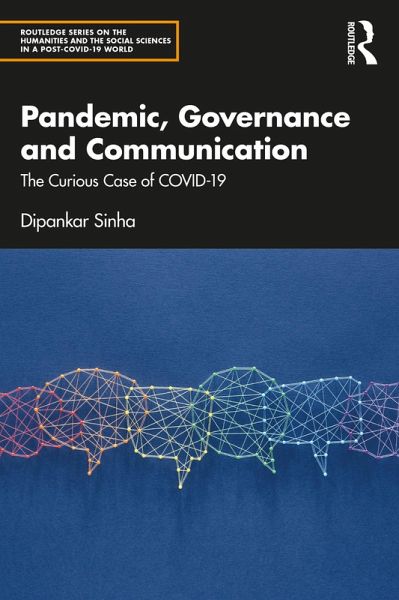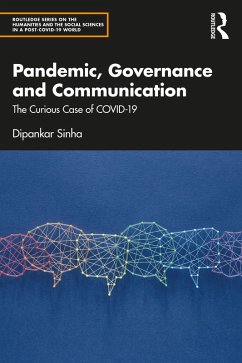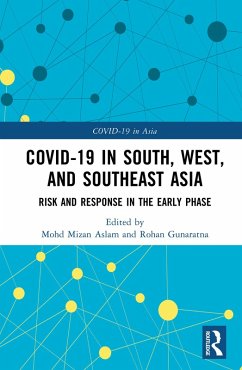
Pandemic, Governance and Communication (eBook, ePUB)
The Curious Case of COVID-19
Versandkostenfrei!
Sofort per Download lieferbar
38,95 €
inkl. MwSt.
Weitere Ausgaben:

PAYBACK Punkte
19 °P sammeln!
This book focuses on what is arguably the most devastating phenomenon in the history of modern civilization, the COVID-19 pandemic.It shows how, on the one hand, the pandemic has exposed governments the world over to deal with a major health crisis; and, on the other, efforts by the ruling forces to enforce surveillance on people and disciplining them by maneuvering cutting-edge digital technology in the name of security and safety. Second, it explores how the mainstream versions of crisis communication and risk communication face huge challenges during a pandemic. Finally, it analyses how the...
This book focuses on what is arguably the most devastating phenomenon in the history of modern civilization, the COVID-19 pandemic.
It shows how, on the one hand, the pandemic has exposed governments the world over to deal with a major health crisis; and, on the other, efforts by the ruling forces to enforce surveillance on people and disciplining them by maneuvering cutting-edge digital technology in the name of security and safety. Second, it explores how the mainstream versions of crisis communication and risk communication face huge challenges during a pandemic. Finally, it analyses how the pandemic propels an extraordinary expansion of infodemic - rapid spread of excessive quantities of misinformation and disinformation of the fake and false variety - and how social media in particular becomes its main tool in causing subversion of the prevalent information order.
Engaging, comprehensive and accessible, this book will be of immense importance to scholars and researchers of politics, especially governance and political communication, communication studies, and public health management. It will be vital for public policy professionals, experts in thinktanks, career bureaucrats, and non-governmental organizations.
It shows how, on the one hand, the pandemic has exposed governments the world over to deal with a major health crisis; and, on the other, efforts by the ruling forces to enforce surveillance on people and disciplining them by maneuvering cutting-edge digital technology in the name of security and safety. Second, it explores how the mainstream versions of crisis communication and risk communication face huge challenges during a pandemic. Finally, it analyses how the pandemic propels an extraordinary expansion of infodemic - rapid spread of excessive quantities of misinformation and disinformation of the fake and false variety - and how social media in particular becomes its main tool in causing subversion of the prevalent information order.
Engaging, comprehensive and accessible, this book will be of immense importance to scholars and researchers of politics, especially governance and political communication, communication studies, and public health management. It will be vital for public policy professionals, experts in thinktanks, career bureaucrats, and non-governmental organizations.
Dieser Download kann aus rechtlichen Gründen nur mit Rechnungsadresse in A, B, BG, CY, CZ, D, DK, EW, E, FIN, F, GR, HR, H, IRL, I, LT, L, LR, M, NL, PL, P, R, S, SLO, SK ausgeliefert werden.













